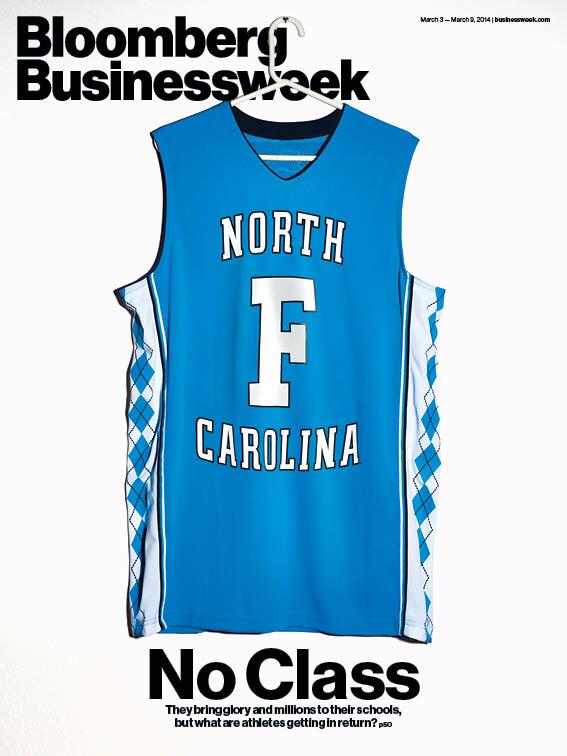The Martin Center’s Shannon Watkins writes today about the denouement of the UNC-Chapel Hill academic scandal. What has amazed me throughout it all is how unapologetically copacetic the entire UNC structure has been with the idea of a generation’s worth of hitherto unimaginable, structural academic fraud for shiny athletic trinkets.
 Watkins summed up that attitude this way:
Watkins summed up that attitude this way:
On October 13th, the NCAA’s Committee on Infractions announced that UNC-Chapel Hill will not be punished for the fraudulent classes it offered to 3,100 students, 47.6 percent of whom were athletes, for nearly two decades. …
The university’s administrators not only appear relieved; they seem convinced that the NCAA made the right decision. In a university message, Chancellor Carol Folt wrote that the NCAA’s conclusion that UNC didn’t violate any NCAA bylaws was the “correct—and fair—outcome.”
I wrote back in 2011 when the bulk of this scandal had yet to be uncovered, but as this attitude was becoming nauseatingly common, that
when a school with as proud and boastful a tradition of honor as UNC faces the decidedly unsavory choice between academic honor (priceless) and temporary athletic glory (measurable in television, ticket, and merchandising revenue) and chooses athletics in so dishonorable a fashion, one would hope that the school’s constellation of honorables would speak out.
They did not. They would not.
I had hoped that UNC could have used their disgrace for ultimate good. UNC’s reputation, though besmirched, would have been more than enough to create serious impetus to reform collegiate athletics. Not now. As I wrote back in 2014:
If anything good is to come from all this, it is that — in the weeks and months to come as this report’s revelations sink in, fester, and create upheaval — the nation’s institutions of higher learning will find a better way to offer athletics without harming a university’s first purpose. UNC can lead the way out. It offers a sobering, Terrie Hall-like cautionary example against athletics indulgence to the detriment of academics.
As I wrote earlier this year: “Beyond that, beyond the money, there is a long, sad train of barely literate athletes victimized by the universities and the NCAA’s system that ‘works to keep them on the field and get them through college, but it is a terrible failure at helping get them through life when the cheering stops.’
“This situation has long been suspected, however — which means that the public has been willing to be blind to it, or at least to tolerate it insofar as it remains hidden. UNC is one of the top standard-bearers for college athletics, so this scandal resonates all the more.
“By the same token, however, UNC can set a new course for student-athletes in revenue sports that could inspire other universities to follow. That should be the aim now.”
Instead, UNC chose to set a new course (ironic word choice, isn’t it?) for other universities willing to debase their academics for tawdry athletic gains: shuttle athletes through phony classes, just make sure you let in other, non-athletes in, too:
What’s stopping a school from setting up a similar “paper course” and making sure it’s open to all students, then sending athletes through it?
UNC did it for 18 years, winning national titles in multiple sports that sent athletes through the class, and is now off accreditation probation. Throughout this seven-year NCAA ordeal, the only actual dings it suffered were to its football program, and those were for dealings with agents and ineligible players taking the field, not for this course. The Heels took a recruiting dip, due to NCAA uncertainty, but that’s over now — and they’re the reigning March Madness champs anyway.
Shorter version: Whatever small advantage UNC derived from having a few more easy As on the team transcript each year, it was totally worth it.
Worse, it makes it more likely other schools will do exactly that. Not only because they can, but because their on-field competitors like UNC already are.
For those fighting to restore greater respect for scholarship and principles in academe to witness such an overthrow, they must feel like what the Duke of Bourbon said in that thing no one is going to read set during some battle no one is going to study:
Shame and eternal shame, nothing but shame!


